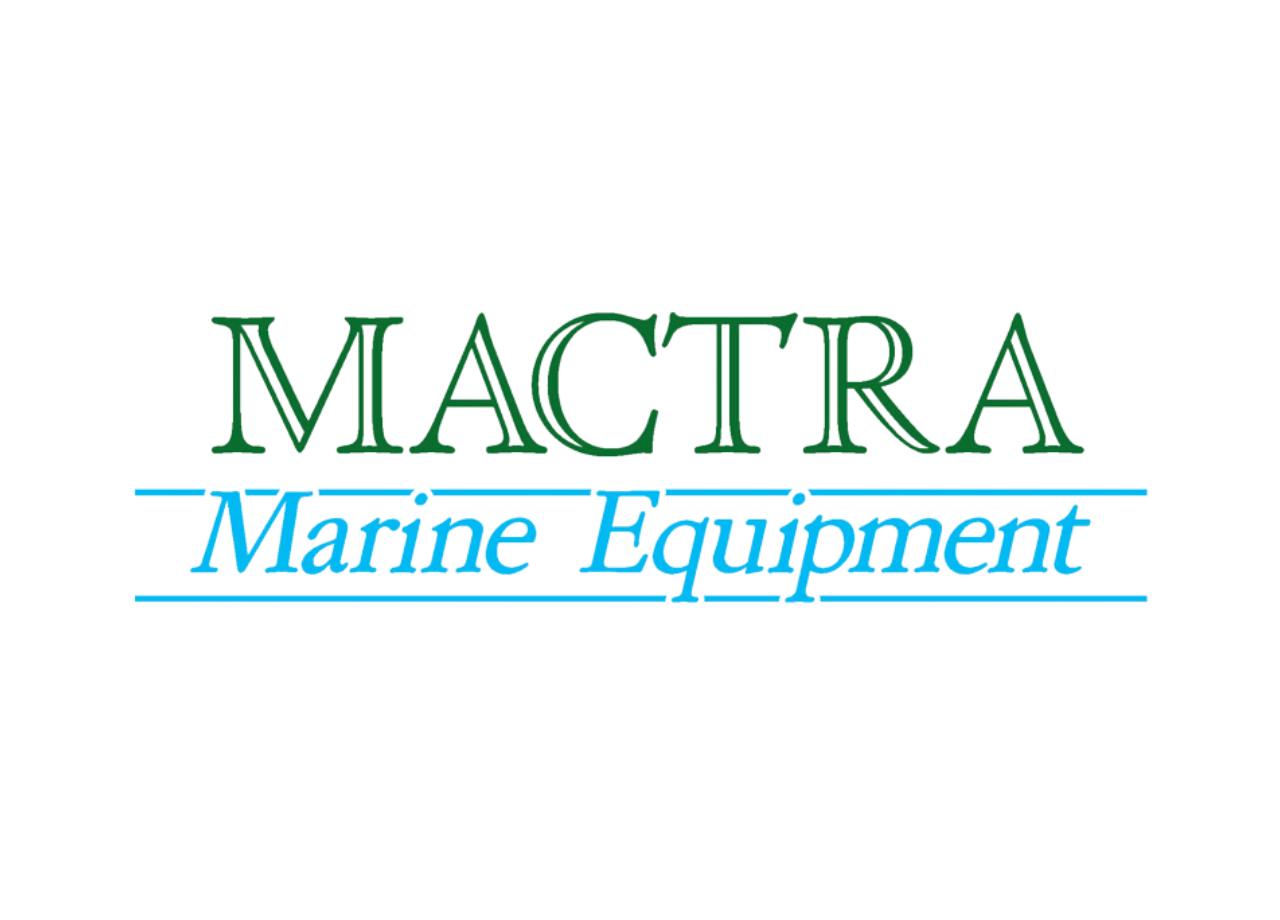
23 Sep 2025
Tips for Buying a Boat with an Existing Watermaker
If you are buying a brokerage boat with a watermaker already installed, what should you look for? Jim Macdonald of Mactra Marine shares his thoughts.
The most popular sailing rallies
Your adventure starts here!
It's your adventure, supported by us
The most popular sailing rallies
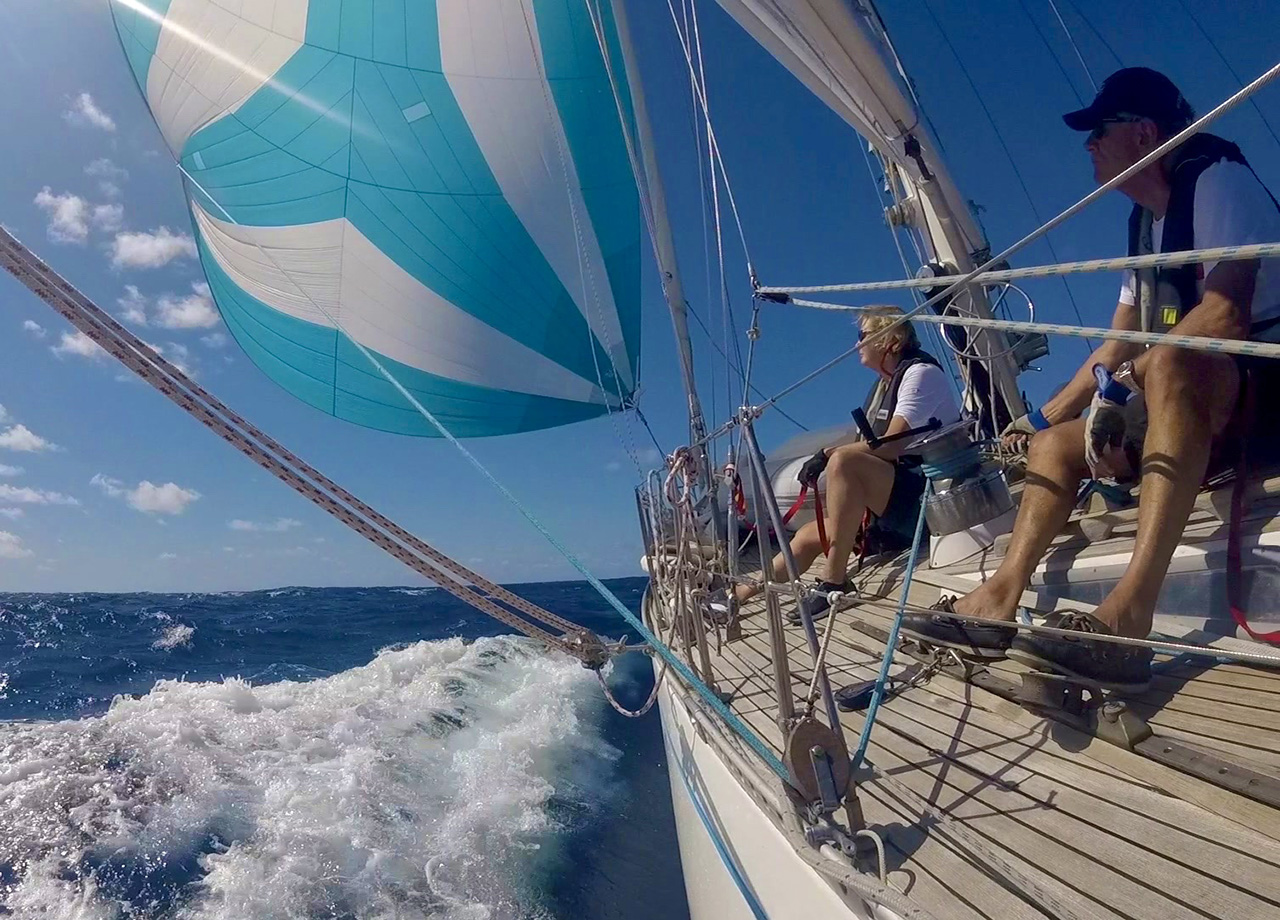
Crossing an ocean is only the beginning of your life afloat. In many cruising areas, marinas and harbours aren’t an option, so you’ll be living on the hook – relying on your anchor.
A suitable size anchor with an appropriate amount of chain on a strong well-serviced windlass will help you sleep well at night. A second anchor and chain is both a back-up and to be deployed in difficult conditions.
The dinghy will become the family car, and most cruisers rapidly swap out a flat bottomed inflatable for a small RIB, solid dinghy or at least an inflatable keel dinghy. As long as it can be stowed securely, no one ever regretted getting a bigger dinghy with the largest appropriate outboard. Always secure the dinghy ashore and at night to avoid casual theft.
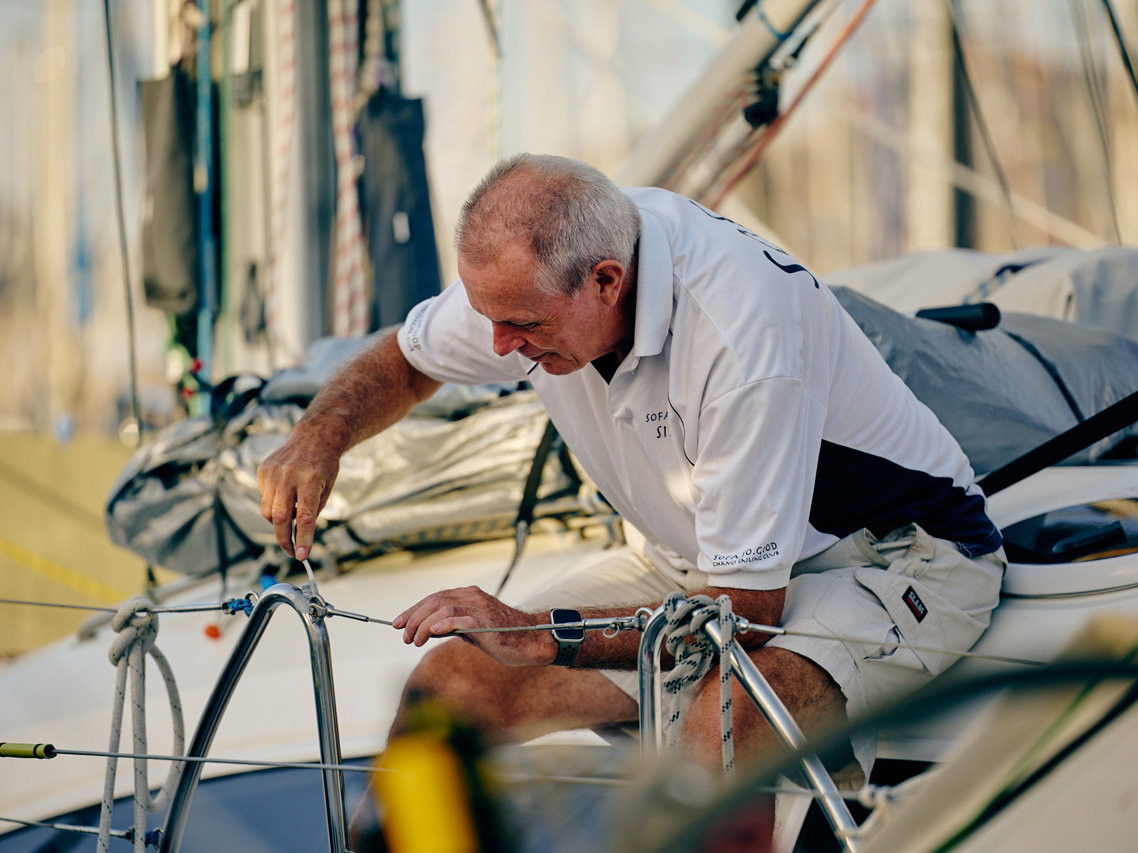
Being self-sufficient in water and electricity means you can spend longer exploring and less time looking for harbours. This could be achieved by installing a watermaker, solar panels and a hydrogenerator, or it may mean being frugal with showers and not running a fridge or a freezer.
Self-sufficiency extends to being able to maintain your boat to reduce reliance on local engineers. You don't want to be stuck in harbour waiting for a spare part or an electrician unless you really have to.
If you participate in a World Cruising Club rally, your boat will need to have at least third-party cover for the duration of the rally. Insurance can be more than a cost - your insurance company can be a good source of advice and information. Always speak with your insurance company at an early stage in your planning.
We recommend that every crew member have personal travel insurance which covers offshore sailing. Comprehensive medical cover, including medivac or repatriation, is a sensible precaution even when cruising the Caribbean. For a circumnavigation, quality personal insurance and medical cover is vital as help may be several hours away.
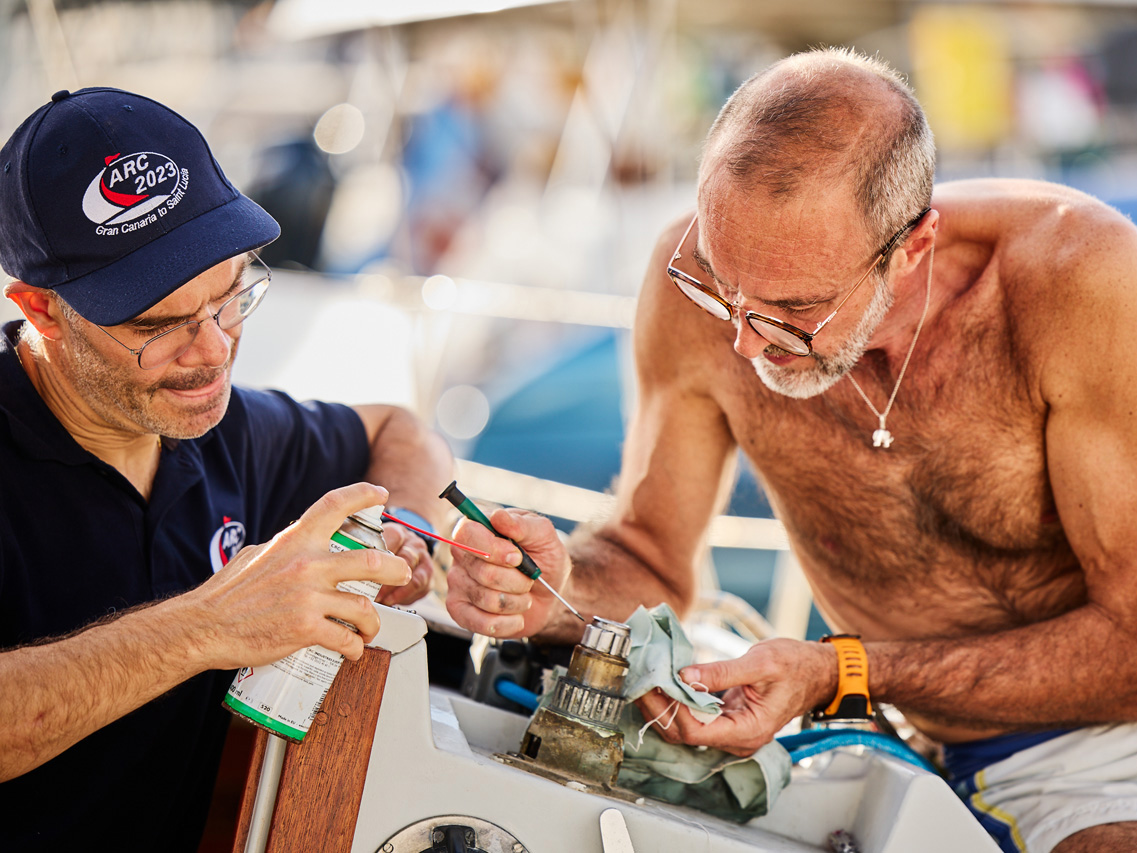
Somebody once said that bluewater cruising was ‘mending the boat in beautiful places’, and it can certainly feel like that! Being able to fix a blocked toilet, broken autopilot or torn sail will make all the difference to crew harmony and passage time.
A comprehensive tool kit and a good selection of general and specific spares is a good place to start. If you can get training in your systems or at least carry all manuals onboard, that will help with troubleshooting, even if you have no power.
Daily checks for potential problems will be a key element in the day of every cruiser, at sea or in port. Alongside rigging and systems checks, daily tasks include inspecting fresh and chilled food for damage, navigating and meal preparation.
Life at sea has its own rhythm - maybe less frantic than the 9-5, but there's always something to do. Most sailors find time for fishing, writing a blog, and communicating with other rally sailors on the WhatsApp or SSB nets. We promise you won't be bored!

23 Sep 2025
If you are buying a brokerage boat with a watermaker already installed, what should you look for? Jim Macdonald of Mactra Marine shares his thoughts.
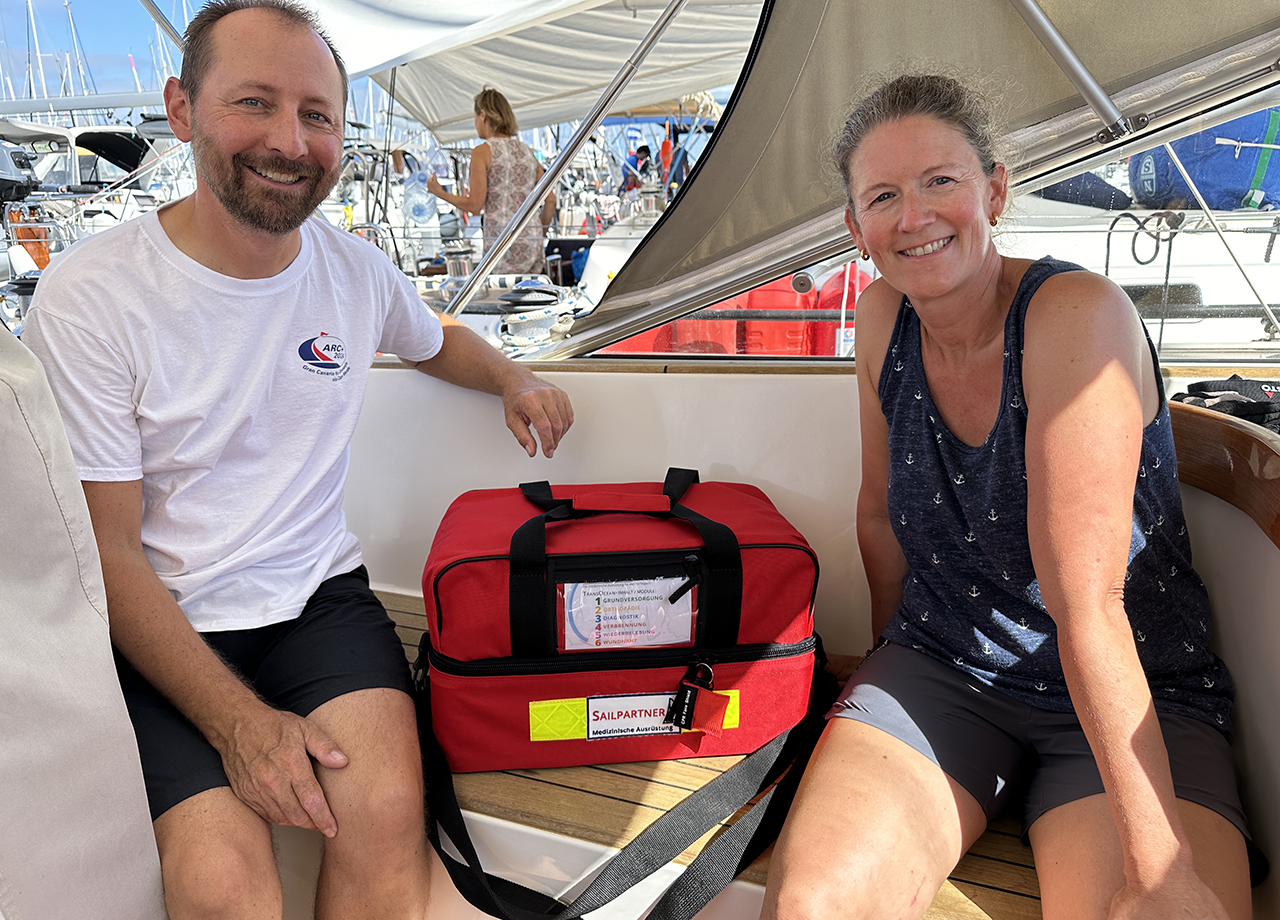
25 Oct 2024
Being prepared for the accident or illness that never happens brings huge peace of mind when you are sailing far from land, or in a country with poor medical facilities.
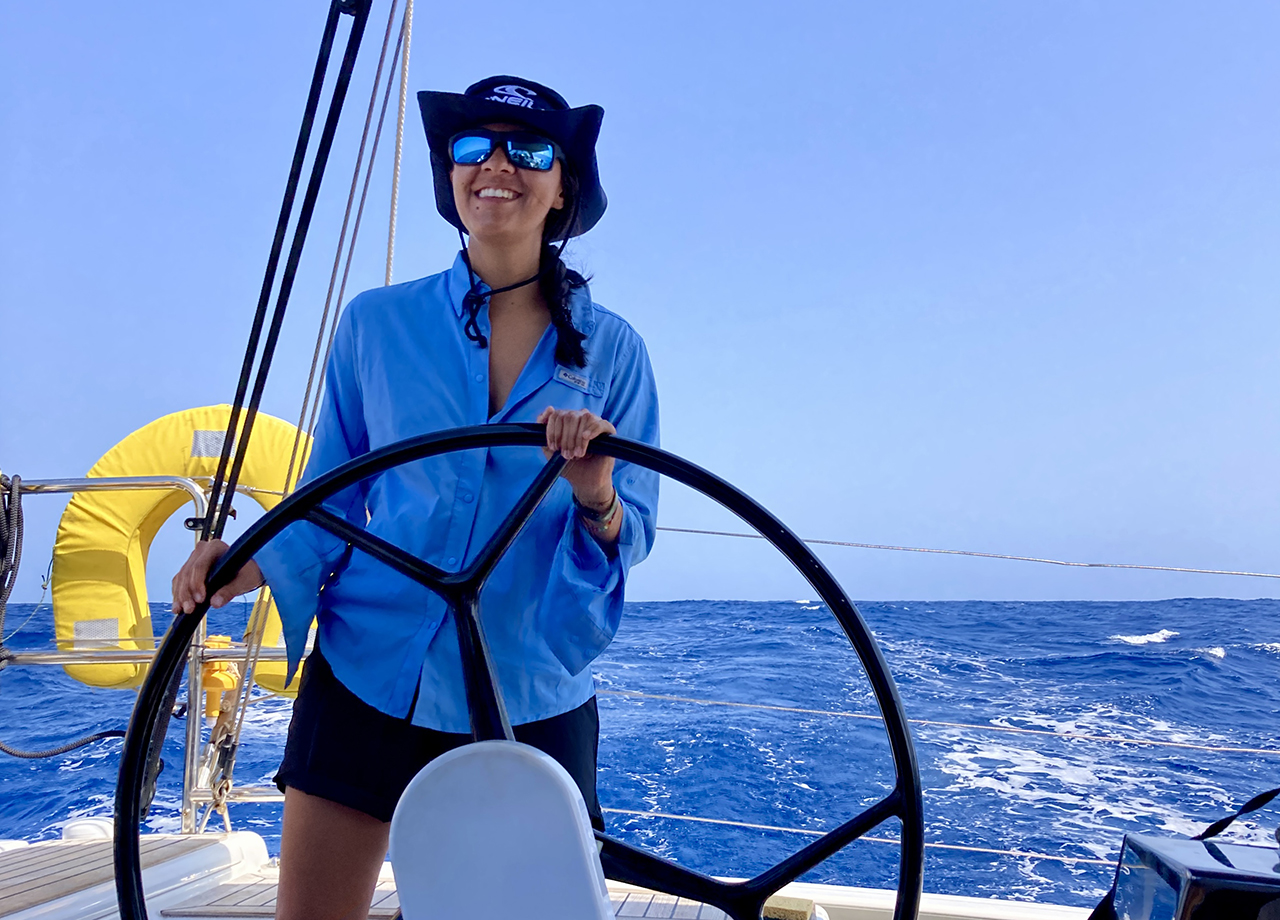
08 Jul 2024
Even in the northern hemisphere, the glare of sunlight on the water can be hard on your eyes. In tropical areas and when crossing oceans, it is doubly important to wear sunglasses and take care of your eyesight.
Tel: +44 1983 296060
Email: [email protected]
120 High Street, Cowes, PO31 7AX, United Kingdom
Made by morphsites®